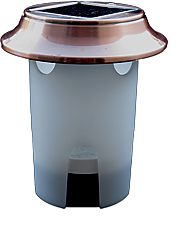What You Want to Know about Mosquitos
Mosquitos are insects that have been around for more than 30 million years. It seems that, during those millions of years, mosquitoes have been honing their skills so that they are now experts at finding people to bite. Mosquitos have a battery of sensors designed to track their prey, including:
Chemical Sensors – mosquitos can sense carbon dioxide and lactic acid up to 100 feet (36 meters) away. Mammals and birds give off these gases as part of their normal breathing. Certain chemicals in sweat also seem to attract mosquitoes as people who don’t sweat much don’t get nearly as many mosquito bites.
Visual sensors – if you are wearing clothing that contrasts with the background, and especially if you move while wearing that clothing, mosquitos can see you and zero in on you. It’s a good bet that anything that moves is alive and therefore full of blood so this is a good strategy for mosquitos.
 Heat sensors – Mosquitos can detect heat, so they can find warm-blooded mammals and birds very easily once they get close enough.
Heat sensors – Mosquitos can detect heat, so they can find warm-blooded mammals and birds very easily once they get close enough.
Mosquito Quick Facts:
- The word “mosquito” is spanish which literally translates to “little fly”.
- There are more than 2500 species of mosquitoes worldwide, 150 of these being found in the US.
- The mosquito goes through four separate and distinct stages of its life cycle: Egg, Larva, Pupa, and Adult.
- Each of these stages can be easily recognized by its special appearance. Eggs are laid on the surface of the water. One female can lay 300 or more eggs.
- Larvae live in water. The larvae obtain air from the water surface through an abdominal siphon. These immature insects usually in a 4 to 10 day period form into pupae. This pupa also lives in water. This stage can last for 1 day or as long as a few weeks.
- The newly emerged adult rests on the surface of the water for a short time to allow itself to dry and all its body parts to harden. The wings have to spread out and dry properly before it can fly. Blood feeding and mating does not occur for a couple of days after the adults emerge.
- How long each stage lasts depends upon temperature and species characteristics.
- A common California (USA) mosquito, might go through its life cycle in 14 days at 70° F and take only 10 days at 80° F.
- On the other hand, some species have naturally adapted to go through their entire life cycle in as little as four days or as long as one month.
- Mosquitos have several ways of tracking their prey.
- They can sense carbon dioxide and some mosquito traps use this characteristic to capture them. These products however do add carbon dioxide to our atmosphere and don’t help our global warming situation.
- Mosquitos don’t have the best eyesight making it difficult for them to distinguish you from other objects, however they do see in contrasting colors so if you are wearing white on a summer night you could be a target. They are attracted to lamps as a bright contrast to their environment.
- They can detect heat in order to find warm blooded targets when they get close enough.
- Wear long sleeves and pants at night instead of shorts.
- Don’t depend on bug zappers. They kill more beneficial bugs than they do mosquitoes.
- Only the female mosquito bites. Actually a mosquito does not “bite”. She siphons the blood out by a tube.
- She requires blood every 3 to 4 days for egg production. She will often drink more than her weight in blood in one “sitting”.
- The male mosquito prefers the taste of flower nectar.
- Young adults are more likely to be bitten than any other age group. Next in line are older adults.
- The only place mosquitos do not live is Antarctica.
- Most species of mosquitos are most active at dusk and dawn.
- Mosquitoes are usually more active during the lighter brighter phases of the moon.
- The average life span of the female mosquito is 3 to 100 days; the male’s is 10 to 20 days.
- Depending on species, female mosquitos may lay 300 or more eggs at a time and may average 1,000 to 3,000 during their lifespan which is usually around four weeks.
- The mosquito matures from egg to adult in 4 to 7 days.
- Most mosquitos remain within 1 mile of their breeding site.
- There are 140 different kinds in the world.
- Biting activity increase by 500 times when there is a full moon.
- A mosquito’s wings beat 500 times a second.
- The animal responsible for the most human deaths world-wide is the mosquito.
- Mosquitos dislike citronella because it irritates their feet.
- Mosquitos prefer children to adults, and blondes to brunettes.
